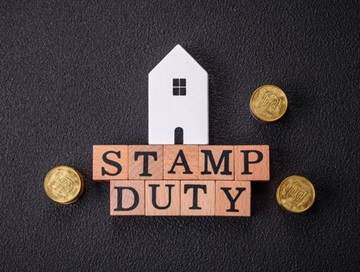Agent Spotlight: Jamie Horner, director, Empire Estate Agents
26 October 2023"We spoke to Jamie about the human side of property transactions and what to consider if you’re investing in strata."

Ever wondered what the differences between a strata complex and a freehold property are? Jamie Horner has the answers, and while they can look very similar, there are some distinct features that set the two apart, requiring a slightly different approach to the way they are managed.
Jamie is a member of REIWA’s Strata Network Committee and the Strata Landgate Working Group, advising on policy development and offering invaluable industry insights on behalf of REIWA members. She is also a REIWA trainer, helping to guide the next generation of strata managers to success.
We spoke to Jamie about the human side of property transactions and what to consider if you’re investing in strata.
How did you get involved in real estate and what about strata appealed to you?
Real estate has been in the family for a long time. My mum started in the industry in the 80’s and my parents chose to buy the worst houses as investments… from the age of 11, I got to learn about leases, rent, property inspections and all parts of real estate.
Strata was a natural progression; I had been working in property management and the two are extremely similar. Many people don’t know exactly what strata is, and the unknown excited me. From a business point of view, there’s always consistent income when you’re working with a large number of owners, so it was a logical fit for our business.
What is your advice to someone purchasing a strata property?
By the time you buy a strata property, you could have been given over a hundred documents and it can be hard to review them all.
However, there are some documents I highly recommend buyers read, including:
- The by-laws and strata plan
- The budgets and financials
- The notices and minutes of the meetings.
While it seems like a lot of paperwork to read before you purchase a property, it ensures you know what you’re buying into. Buyers may be unaware of what they own (such as walls or parking spaces) or their responsibilities as a resident, so this can alleviate many questions. If a buyer has any other queries or wants more information, their strata manager is always there to help throughout the buying process.
How would you describe the role of a strata manager?
People tend to put strata managers and property managers in the same basket. Where they differ is that a strata manager will look after the property, but also takes on the common areas of a strata scheme such as gyms, laundries, meeting spaces and barbeque areas.
In property management, you have the owner and tenant falling under the Residential Tenancies Act, and in Strata you have the lot owner and residents under the Strata Titles Act.
Strata can be as simple as three small houses on a single block, all the way up to a high-rise apartment building that includes a pool and multi-level car park. It can also include a row of warehouses or a shopping centre with multiple clients.
The job would be simple if there was only the property transaction and maintenance, but both strata and property managers handle the responsibility involved in the relationships with tenants and owners as well. You wear many hats, whether that is a debt collector gathering levies or rent, a psychologist helping a resident or tenant to navigate troubled waters, or police officer upholding the by-laws of a strata scheme and the various Acts that govern both.
What do you love most about your job?
It’s definitely the people, you never know who you might talk to in a day. From a contractor to a 90-year-old owner or lawyers and selling agents, it’s always exciting.
I love that you get to work with a nice cross-section of people.
What have the past 12 months been like for you, and where do you see strata heading in the next five years?
It’s been a big year in strata. The Strata Titles Act was amended in 2020, and that has brought with it a lot of questions from owners about their levies, their strata management services and the rising cost of living.
The last time the Act was reviewed was in 1996, so you can imagine just how much the industry has changed over that time.
Strata is definitely in a huge growth phase. When you look at our population growth, it shows the growing need for more medium and high-density housing. This means that over time, the need for strata managers will only increase.
What is your advice to someone thinking of starting a career in real estate?
I think strata is a lesser-known part of the industry, but if you've got people skills, great communication, problem solving skills, and a good sense of humour, it's a perfect fit.
You've got to have a love of wanting to talk to and work with people. I find it's a mix, you've got to know your processes, and you've got to be a good problem solver.
It's an ever-evolving job, and it's a fun one, so I would encourage those thinking about it to dive into the unknown.
.tmb-rcarousel.jpg?sfvrsn=24ed8b20_1)







.tmb-rcarousel.png?sfvrsn=3619a769_1)
